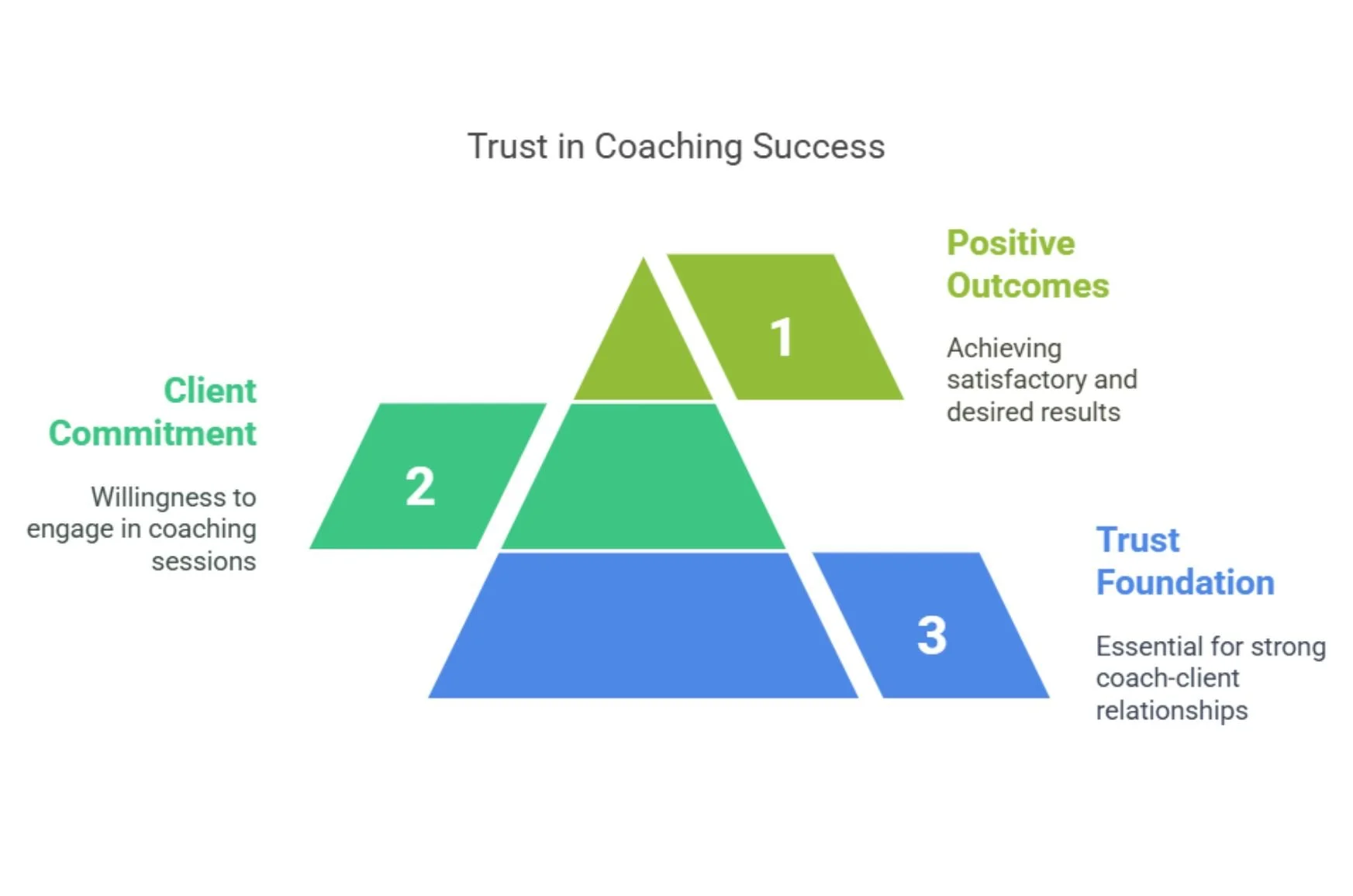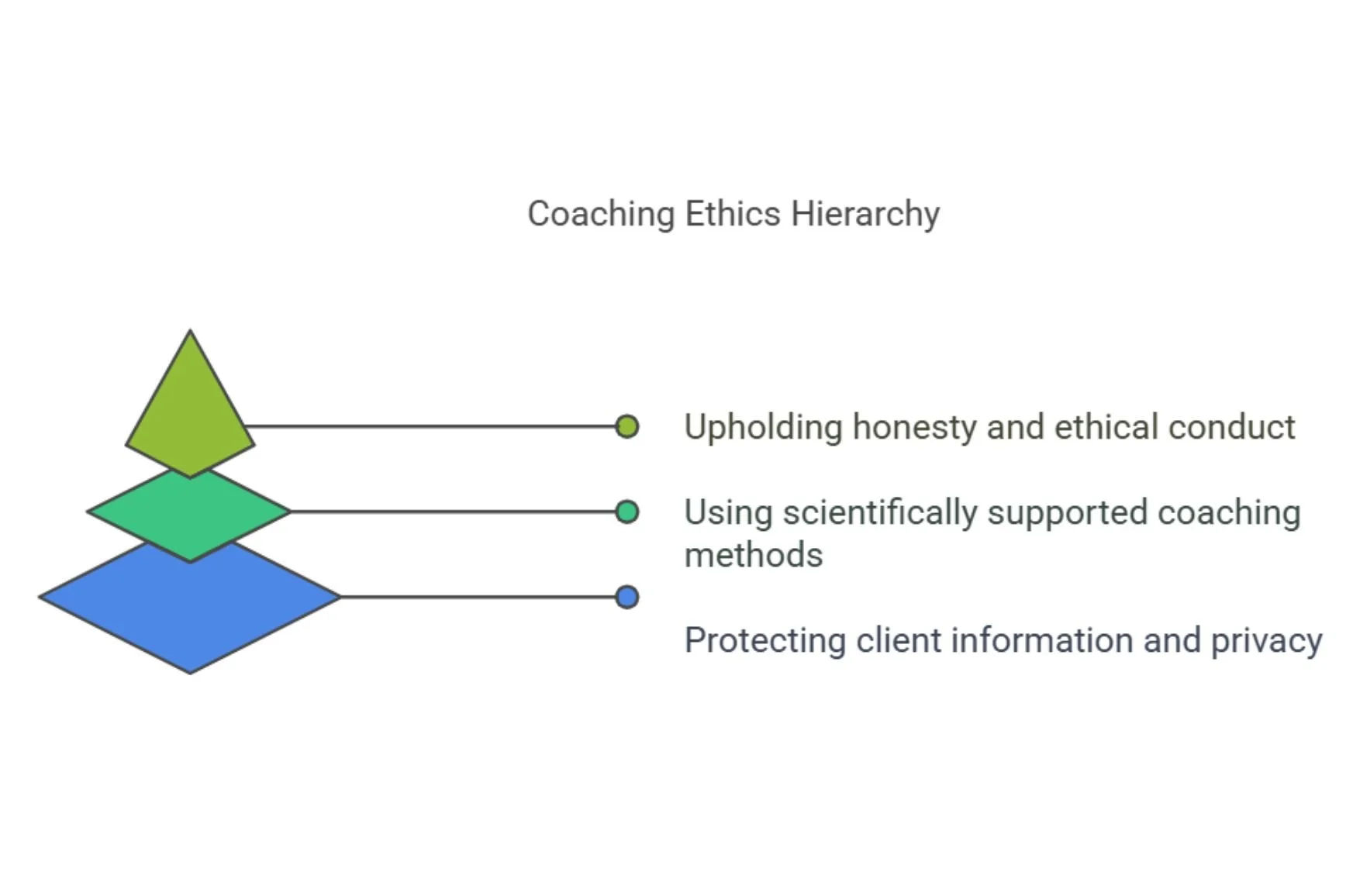How Does Health Coach Certification Influence Client Trust?
In an era where health and wellness are prioritized more than ever, individuals seek guidance from health coaches to improve their lifestyles, manage chronic conditions, and achieve personal wellness goals. But how can clients determine which health coach is trustworthy? One of the key factors that influence trust is certification. A health coach certification demonstrates professional credibility, expertise, and a commitment to ethical coaching practices. But does it really make a difference in how clients perceive and trust their health coach? In this blog, we will explore the role of certification in building client trust, compare certified and non-certified coaches, and examine whether credentials alone are enough to establish credibility.
What is Health Coach Certification?
Health coach certification is an accreditation provided by recognized institutions to individuals who meet certain educational and professional standards in health coaching. These certifications validate that a coach has received formal training in areas such as nutrition, behavior change, wellness strategies, and coaching methodologies. Some of the most recognized certifying organizations include:
National Board for Health & Wellness Coaching (NBHWC)
American Council on Exercise (ACE)
International Sports Sciences Association (ISSA)
Institute for Integrative Nutrition (IIN)
Certified vs. Non-Certified Health Coaches
A certified health coach has completed an accredited training program, passed a certification exam, and adheres to ethical guidelines set by their certifying body. On the other hand, a non-certified coach may have self-taught knowledge, personal experience, or informal training but lacks official recognition.
Advantages of Certified Health Coaches
Structured Education & Training
Certified health coaches undergo a formal curriculum covering key aspects of health and wellness, including nutrition, exercise, behavior change techniques, and client communication.
They learn scientifically backed methods that improve client outcomes and ensure safe, effective coaching.
Ethical and Professional Standards
Certification requires adherence to codes of ethics that protect clients from misinformation and unethical practices.
They are held accountable by professional organizations, ensuring consistent quality and reliability.
Greater Marketability & Credibility
Clients are more likely to trust and invest in a certified health coach because of their verified credentials.
Certification increases job opportunities, partnerships, and credibility in the wellness industry.
Potential Strengths of Non-Certified Health Coaches
Real-World Experience & Personalized Coaching
Some non-certified coaches have years of hands-on experience and deep knowledge gained through personal wellness journeys or working with clients.
They may offer a more flexible and tailored approach to coaching, as they are not confined to a single curriculum.
Cost-Effective Coaching Options
Without the financial burden of certification programs, non-certified coaches may offer more affordable services, making coaching accessible to a broader audience.
Specialized Niche Expertise
Some non-certified coaches focus on highly specific wellness areas (e.g., holistic healing, alternative medicine) and provide unique insights beyond traditional health coaching programs.
Why Does Client Trust Matter in Health Coaching?
Trust is the foundation of any successful coach-client relationship. Without trust, clients may be hesitant to follow guidance, commit to coaching sessions, or invest in long-term programs. A lack of trust can lead to low engagement, skepticism, and ultimately, unsatisfactory results.
How Trust Impacts Coaching Success
Higher client retention rates – Clients who trust their coach are more likely to stay committed.
Increased adherence to recommendations – A trusted coach's advice is more likely to be followed.
Better communication and openness – Clients feel comfortable discussing personal health concerns.
More referrals and business growth – Satisfied clients recommend trusted coaches to others.
How Certification Enhances Client Trust
A health coach’s certification directly impacts client trust in several ways:
1. Credibility and Professionalism
Clients perceive certified coaches as more knowledgeable and credible than non-certified coaches. A certification signifies that a coach has undergone rigorous training and adheres to industry standards.
2. Knowledge and Competence
Certification programs provide education on nutrition, fitness, behavior change, and health psychology. This structured knowledge enhances a coach’s ability to offer scientifically backed guidance rather than opinions or unverified methods.
3. Ethical Standards and Guidelines
Certified coaches are bound by ethical guidelines, including:
Maintaining client confidentiality.
Providing evidence-based recommendations.
Avoiding misleading claims about health outcomes.
These ethical standards build trust by ensuring professionalism and integrity.
4. Accountability and Regulations
Most certifying bodies require continuing education and periodic renewals, ensuring that certified coaches stay updated with the latest research and best practices. This ongoing education reassures clients that their coach is continuously improving.
Common Concerns About Certification
While certification is an important factor, some common concerns include:
1. Cost and Accessibility
Certification programs can be expensive, and some skilled coaches may not be able to afford them. Does this mean they are not trustworthy? Not necessarily. Some highly experienced and knowledgeable coaches may not hold a certification but still deliver excellent results.
2. Experience vs. Certification
Many clients value real-world experience over formal certification. Some non-certified coaches have years of hands-on experience, personal transformations, or deep practical knowledge that makes them just as effective as certified coaches.
3. Misinformation and Over-Reliance on Credentials
Not all certifications are equal. Some online courses offer quick certifications without rigorous training. Clients should research a coach’s certification to ensure it comes from a reputable organization.
How Clients Perceive Certified vs. Non-Certified Coaches
Survey Data and Client Preferences
Studies suggest that clients generally prefer certified coaches because of the perceived expertise and security that comes with accreditation. However, trust is built over time, and a coach’s ability to connect, communicate, and deliver results is just as important as their credentials.
Case Studies
Certified Coach Success Story – A client with chronic health issues improved significantly after switching to a certified coach who provided structured, research-backed recommendations.
Experienced Non-Certified Coach Success Story – A coach with years of experience but no certification helped a client achieve weight loss goals through personalized and empathetic coaching.
Building Trust Beyond Certification
While certification is valuable, other factors contribute to a client’s trust in their coach:
1. Strong Communication Skills
Active listening and empathy help build a deeper connection with clients.
Clear, jargon-free explanations make recommendations easier to follow.
2. Client-Centered Approach
Tailoring advice to individual needs fosters better engagement.
Flexible coaching styles accommodate different learning preferences.
3. Social Proof and Testimonials
Positive reviews, testimonials, and word-of-mouth referrals strengthen credibility.
4. Continuous Learning and Improvement
Coaches who stay updated on new research, trends, and methodologies earn long-term trust from clients.
Should You Choose a Certified Health Coach?
For clients deciding between certified and non-certified coaches, consider:
The coach’s experience and past client results.
Their ability to communicate effectively and build rapport.
Whether they follow evidence-based practices.
Their ethical approach and commitment to professional growth.
10 Less Known Facts
Not all certifications are created equal – Some programs are more rigorous and require ongoing education, while others offer quick, low-quality certifications with minimal training.
Certification doesn’t guarantee coaching success – While it adds credibility, the ability to connect with clients and provide personalized guidance is just as important.
Some top health coaches are not certified – Many well-known wellness influencers and health coaches have built their reputations on experience rather than formal certification.
Clients often assume certification means medical expertise – Some clients mistakenly believe that a certified health coach has the same authority as a registered dietitian or medical professional.
Ethical guidelines prevent misleading health claims – Certified health coaches must adhere to ethical standards that prevent them from making false health promises or diagnosing conditions.
Continuing education is required for many certifications – Some certifications, such as NBHWC, require ongoing learning to ensure coaches stay updated with the latest health trends.
Non-certified coaches may specialize in niche areas – Many non-certified coaches focus on alternative wellness practices like herbal medicine, fasting protocols, or holistic healing.
Health coach certification can be expensive – The cost of obtaining a reputable certification can range from $500 to $5,000+, which may be a barrier for some aspiring coaches.
Most clients don’t verify certifications – While certification boosts credibility, many clients never actually check if a coach’s certification is valid or from a reputable organization.
Coaching experience often outweighs certification – Some clients value a coach’s personal transformation and years of hands-on experience more than a formal certification
Conclusion
Health coach certification plays a significant role in influencing client trust by establishing credibility, ensuring knowledge, and promoting ethical standards. However, certification alone is not the sole determinant of a coach’s trustworthiness. Experience, communication skills, and client relationships are equally important.
ANHCO (Association of Natural Health Coaches & Organizations) is a professional body that supports natural health coaches through education, networking, and certification programs. It promotes holistic wellness coaching and sets ethical standards for practitioners. Health coach certification validates a coach's expertise in nutrition, behavior change, and wellness strategies, ensuring they follow ethical guidelines and industry best practices.
References
American Association of Drugless Practitioners - Health Coach Certification
Institute for Integrative Nutrition - Health Coach Certification
FAQS
-
Certification demonstrates that a health coach has received proper training and adheres to professional standards, giving clients confidence in their ability to offer effective and safe guidance.
-
A certified health coach builds trust by showcasing their qualifications, knowledge, and commitment to ethical practices, which helps clients feel more secure in their coaching relationship.
-
While some clients may trust an uncertified coach, certification increases credibility, which is especially important for clients seeking professional advice on health and wellness.
-
Certification programs teach coaches evidence-based practices, ethical guidelines, and effective communication skills, all of which help ensure that clients receive high-quality support.
-
Yes, certification signals professionalism and commitment to excellence, which reassures clients that their coach is knowledgeable and accountable.
-
Knowing their coach is certified reassures clients that they are receiving reliable, structured support, which increases their confidence in the coaching process and their ability to reach their goals.
-
Yes, certified coaches are more likely to retain clients, as clients often value qualifications and the sense of security that comes with working with a trained professional.
-
Coaches can highlight their certification on their website, social media, and during consultations to demonstrate their expertise, helping potential clients feel more comfortable and trusting in their services.




